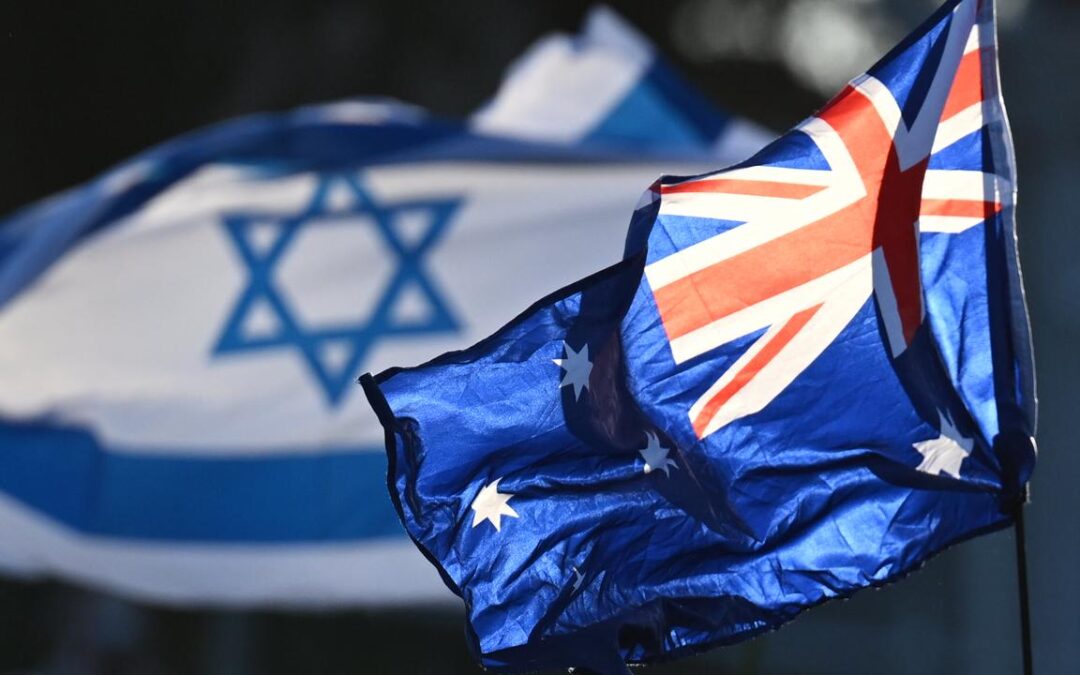
Australian diplomats in limbo amid tit-for-tat visa ban
The status of three Australian diplomats is up in the air after Israel revoked their visas to the Palestinian Authority in response to Australia’s recognition of Palestine and for refusing entry to Israeli figures.
In a social media post on Monday, Israel’s Foreign Minister Gideon Sa’ar said he had also instructed the Israeli Embassy in Canberra to carefully examine any official Australian visa application for entry into Israel.
The move followed Australia denying far-right Israeli politician Simcha Rothman from entering the country for a speaking tour after provocative comments, including branding children in Gaza as enemies.
Foreign Minister Penny Wong said the government had a right to safeguard communities and protect “all Australians from hate and harm”.
“At a time when dialogue and diplomacy are needed more than ever, the Netanyahu government is isolating Israel and undermining international efforts towards peace and a two-state solution,” Senator Wong said in an early morning statement on Tuesday.
“This is an unjustified reaction following Australia’s decision to recognise Palestine.”
She said Australia would continue to contribute to “international momentum to a two-state solution, a ceasefire in Gaza and release of the hostages” and would always take decisive action against anti-Semitism.
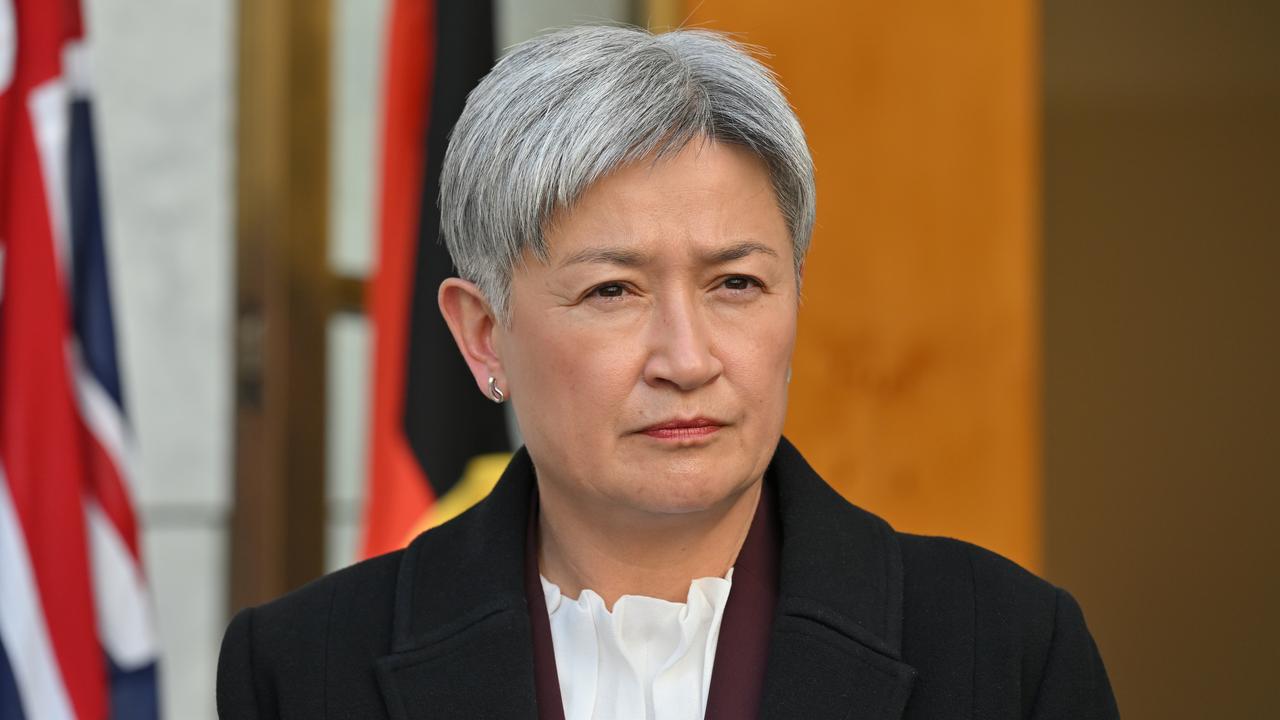
Three Australian staff members were affected by the decision, with the Department of Foreign Affairs and Trade working out the ban’s implications for them.
It was important that Australia had representatives on the ground in Palestine, Finance Minister Katy Gallagher said.
“These are important positions in terms of us understanding what’s going on, also in supporting the co-ordination of aid and support on the ground,” she told ABC Radio National.
The Palestinian Authority’s Ministry of Foreign Affairs condemned Israel’s “arbitrary” cancellations.
It said it would continue to deal with the Australian diplomats, saying Israel had no legal basis to block citizens of a third nation from entering Palestinian territory.
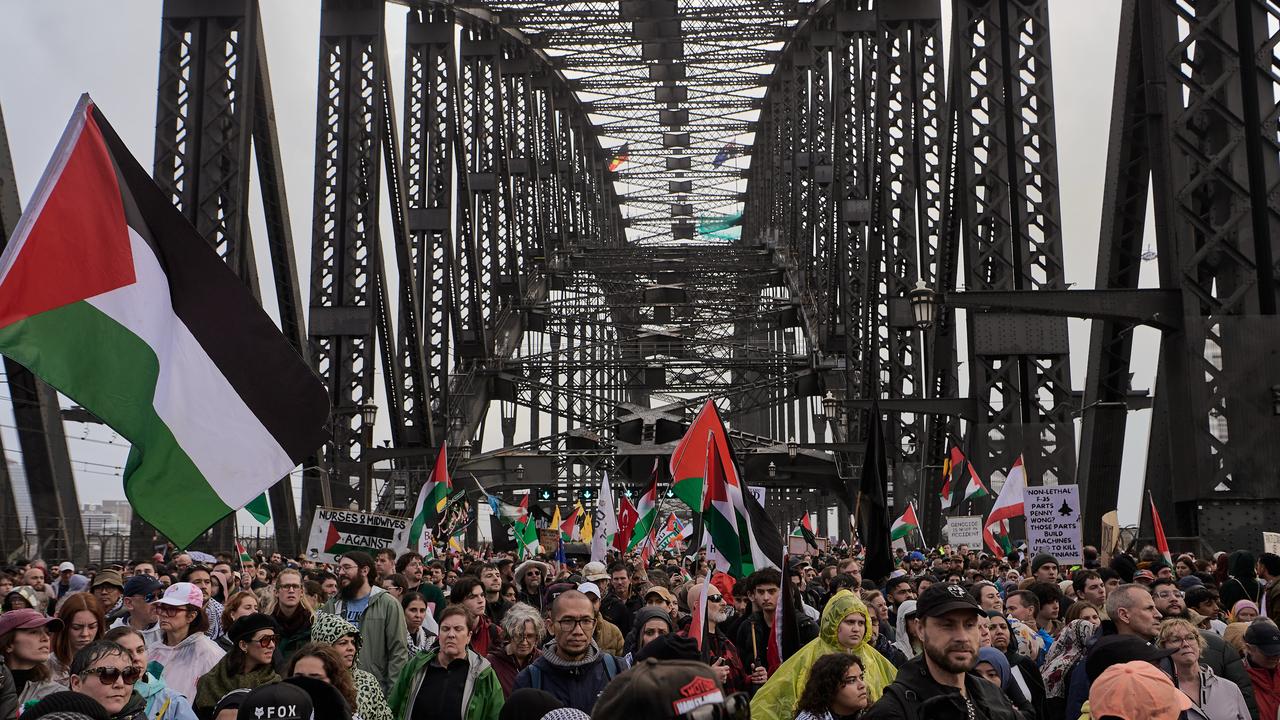
Earlier in August, Prime Minister Anthony Albanese confirmed Australia’s intention to recognise Palestinian statehood at the United Nations General Assembly meeting in September.
An estimated 25,000 people marched across the Sydney Harbour Bridge to protest the war in Gaza at the start of the month.
Mr Sa’ar accused the Australian government of fuelling anti-Semitism as he announced the visa cancellations on social media on Monday.
“This follows Australia’s decisions to recognise a ‘Palestinian state’ and against the backdrop of Australia’s unjustified refusal to grant visas to a number of Israeli figures, including former minister Ayelet Shaked and … (Member of the Knesset) Simcha Rothman,” Mr Sa’ar posted on X.
Opposition Leader Sussan Ley said she regretted the way the relationship between the Australian and Israeli governments was deteriorating.
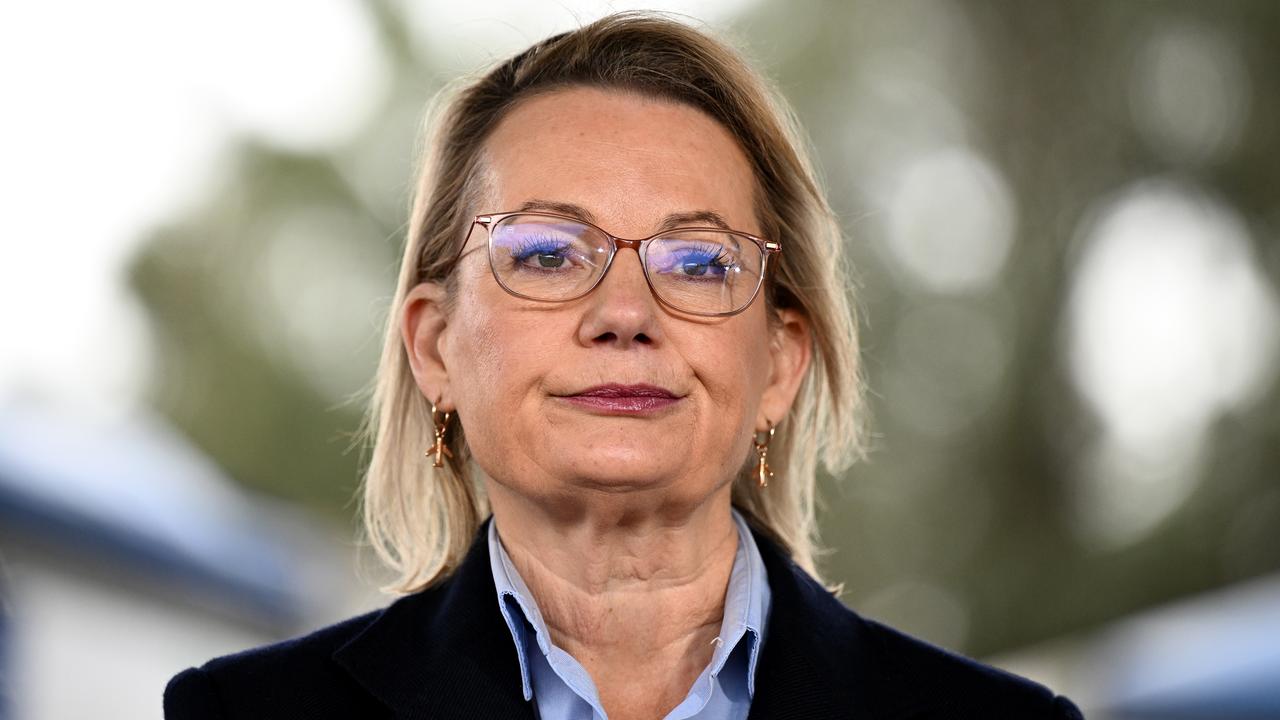
“That is something all Australians should be very sad about today,” she told reporters in Sydney.
Australia should be supporting Israel as a “liberal democracy” but had not demonstrated that in recent weeks, Ms Ley said, calling on Home Affairs Minister Tony Burke to explain his decision to reject Mr Rothman’s visa.
Australia has also denied entry to former Israeli minister Ayelet Shaked, based on anti-Palestinian comments, and Israeli advocate Hillel Fuld.
Canberra has further imposed sanctions on two far-right Israeli ministers, including travel bans.
The federal government has denied entry to people who have a history of anti-Semitism, including rapper Kanye West after he released a song praising Hitler, as well as Lebanese pro-Hezbollah influencer Hussain Makke.
Lifeline 13 11 14
beyondblue 1300 22 4636
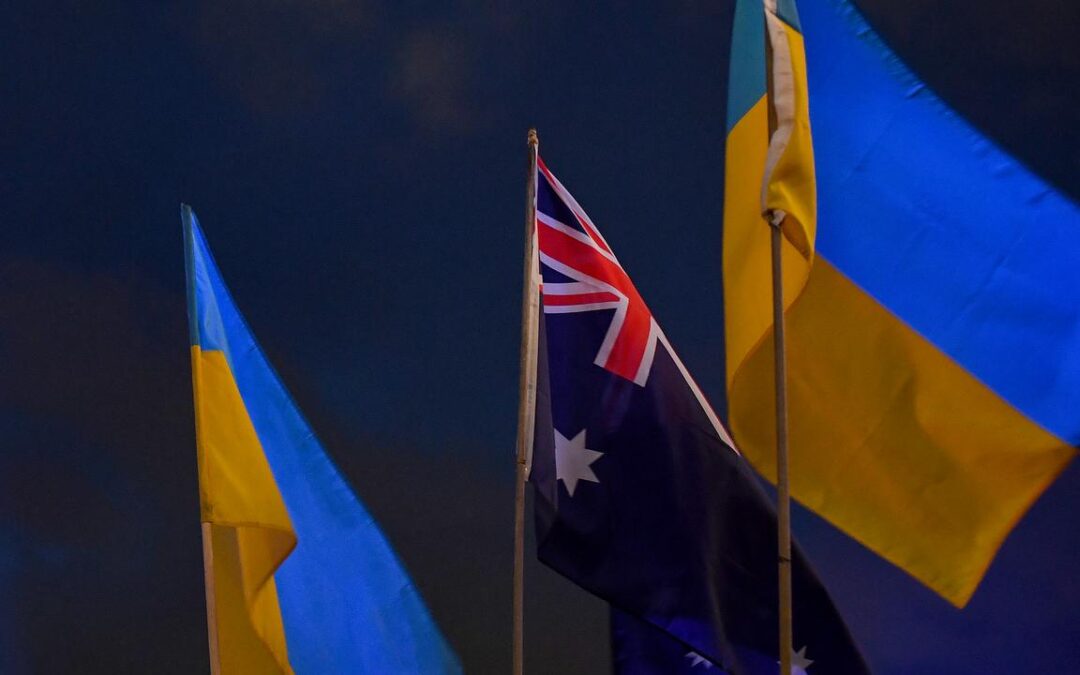
Major parties on same page on peacekeepers in Ukraine
The coalition appears likely to support any government decision to send Australian peacekeepers to Ukraine if security talks between US and European leaders bring peace to the war-torn nation.
When Prime Minister Anthony Albanese previously said Australia would consider requests to join a peacekeeping force, the former opposition leader Peter Dutton dismissed it as a “thought bubble”.
But Opposition Leader Sussan Ley has now indicated the coalition is open to Australia joining a global effort in Ukraine.
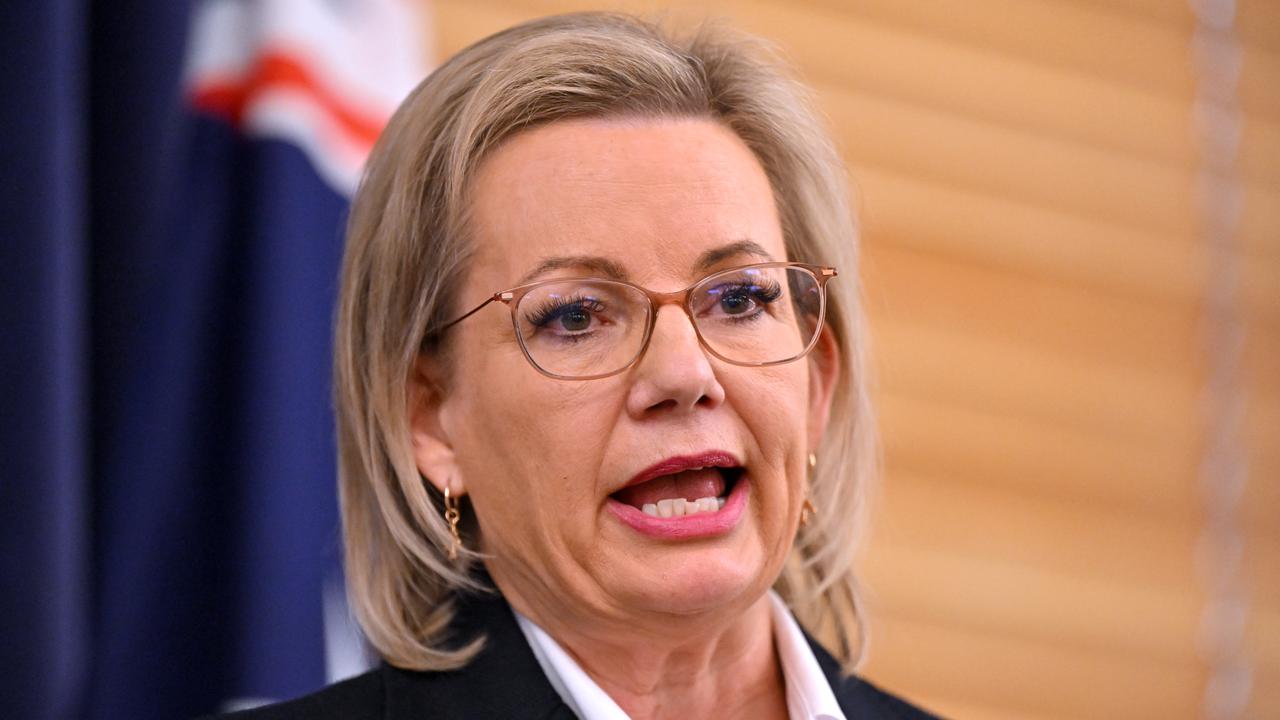
“We will work constructively with the government in our national interest when it comes to our international relationships,” a spokesman for Ms Ley said on Tuesday.
“We will assess any concrete proposals the government brings forward and put them through our internal processes.
“The coalition unequivocally supports Ukraine in its fight against Russia’s illegal and immoral invasion.”
Liberal frontbencher James Paterson added that security guarantees for Ukraine would be a necessary part of any peace deal, which the US is trying to broker between Russia and Ukraine.
“That would have to be led by the United States and European partners, but if Australia is invited to play a role in that, then we should consider whether we can make a constructive contribution to that,” he told ABC TV.
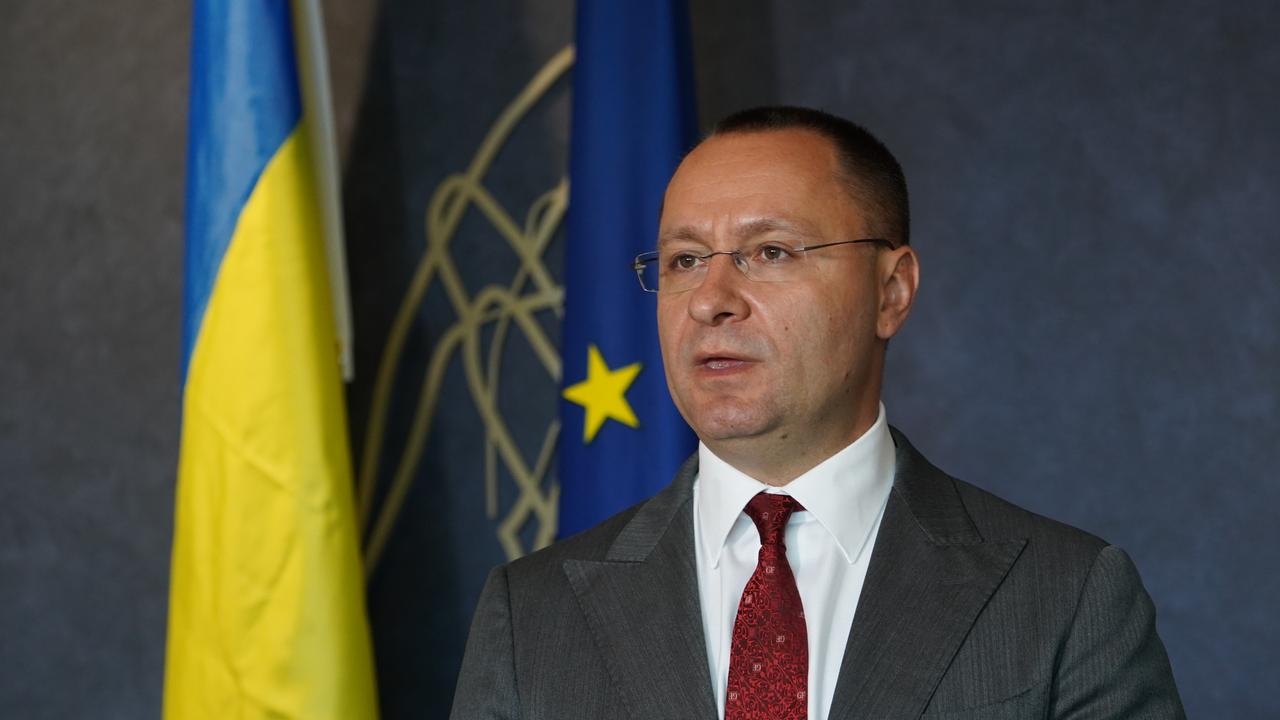
Ukraine’s ambassador to Australia Vasyl Myroshnychenko said bipartisanship on his country’s security was vital.
“I welcome that decision, I think that’s a very smart decision,” he told AAP.
“We’ve traditionally had that bipartisan support and I think it’s the right thing to do.”
US President Donald Trump held talks in Washington on Tuesday morning, AEST, with his Ukrainian counterpart Volodymyr Zelenskiy, who was flanked by a string of European leaders.
Ukraine’s security was the focal point of the meeting, after Mr Trump met with Russian President Vladimir Putin to discuss a peace deal in Alaska over the weekend.
Mr Trump said the US would guarantee the security of Ukraine as part of any deal to end the war, but no ceasefire or peace agreement would be reached until a three-way meeting of American, Russian and Ukrainian leaders could be held.
The US president has also ruled out Ukraine joining the NATO alliance, which Russia has described as a red line.
NATO’s 30-nation members, including the US, still hold to a security clause that states an attack on one is an attack on all.
But there were discussions about a NATO-like security guarantee for Ukraine, although details remain vague.
Mr Myroshnychenko said the White House meeting marked major progress toward ending the latest conflict, which began when Russia invaded Ukraine in 2022, and was “a demonstration of how we can work together to force Russia into peace”.
He lauded the combined diplomatic efforts of the European leaders, pointing to his president who said that it was “the best meeting he had for the past six months with Donald Trump”.
“I think it was a very positive meeting,” Mr Myroshnychenko said.
“I think it was an extraordinary diplomatic effort to have seven diplomatic leaders travelling, so that’s already unheard of in terms of the diplomatic effort.
“That was a very good demonstration of strength and unity.”
The ambassador added that security guarantees in any peace deal would be essential, and warned of the need for a strong deterrence against Russia.
“Russia stepped up their attacks overnight against civilians and destroyed a university,” he said.
“A Ukrainian university is a legitimate military target in their eyes.”
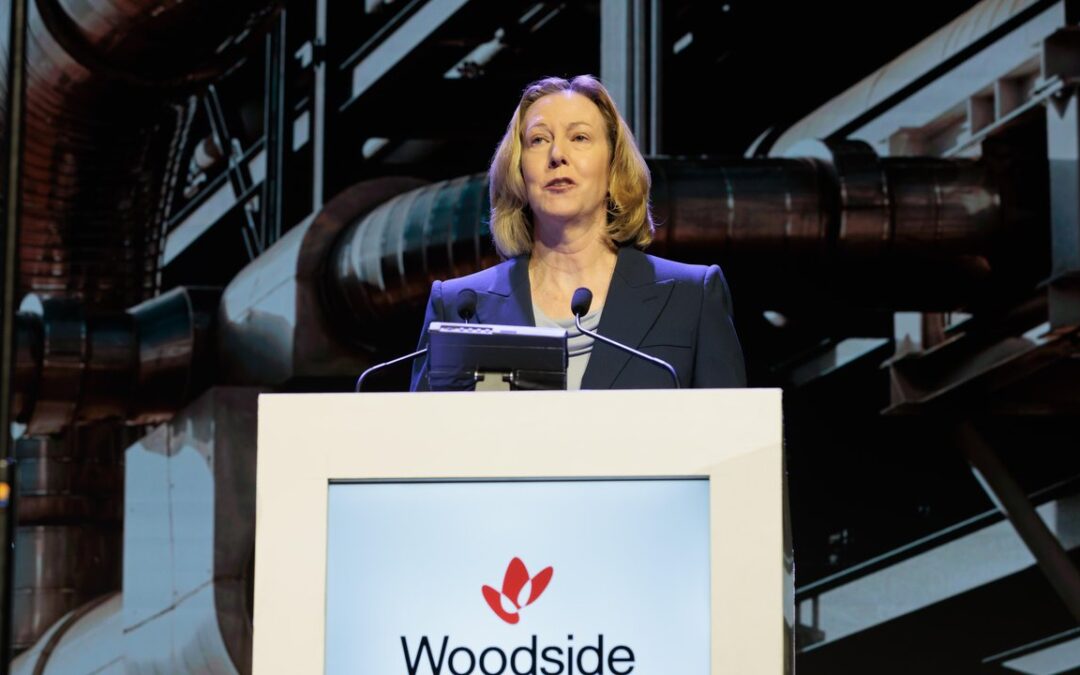
Woodside profit down despite output boost as prices dip
Major Australian energy producer Woodside has recorded a 24 per cent decline in interim earnings, despite higher production revenues.
The gas and oil giant posted an underlying net profit of $US1.24 billion (A$1.91 billion) for the first half, down from $US1.63 billion (A$2.51 billion) previously.
But the outcome was a little better than the market consensus estimate of $US1.22 billion ($A1.88 billion).
The bottom line result was $US1.32 billion ($A2.03 billion), down 32 per cent.
Weaker commodity prices and other factors weighed on the bottom line and more than offset a major boost in production, which was buoyed by the Sangomar oil project.
A $US445 million ($A684 million) restoration expense and a $US143 million ($A220 million) impairment loss from Woodside’s decision to exit the H2OK proposed liquid hydrogen project in Oklahoma also weighed.
Woodside’s operating revenue increased 10 per cent in the six months ended June 30 to US$6.59 billion ($A10.14 billion).
The company also recorded an 11 per cent rise in half-year production to 99.2 million barrels of oil equivalent.
Woodside will pay an interim dividend of 53 US cents per share, which is lower than the 69 US cents paid out in the prior corresponding half.
But CEO Meg O’Neill said the 80 per cent payout ratio of underlying net profit after tax was still at the top of the range.
“Strong underlying performance of our assets, our robust financial performance, and a focus on disciplined capital management have enabled us to maintain our interim dividend payout ratio at the top end of the payout range,” she said.
Woodside also logged progress on the Scarborough Energy Project in Western Australia, which is now 86 per cent complete ahead of its first shipments of LNG in the second half of 2026.
Woodside’s share price was tracking lower before noon, down 1.5 per cent at $26.49.
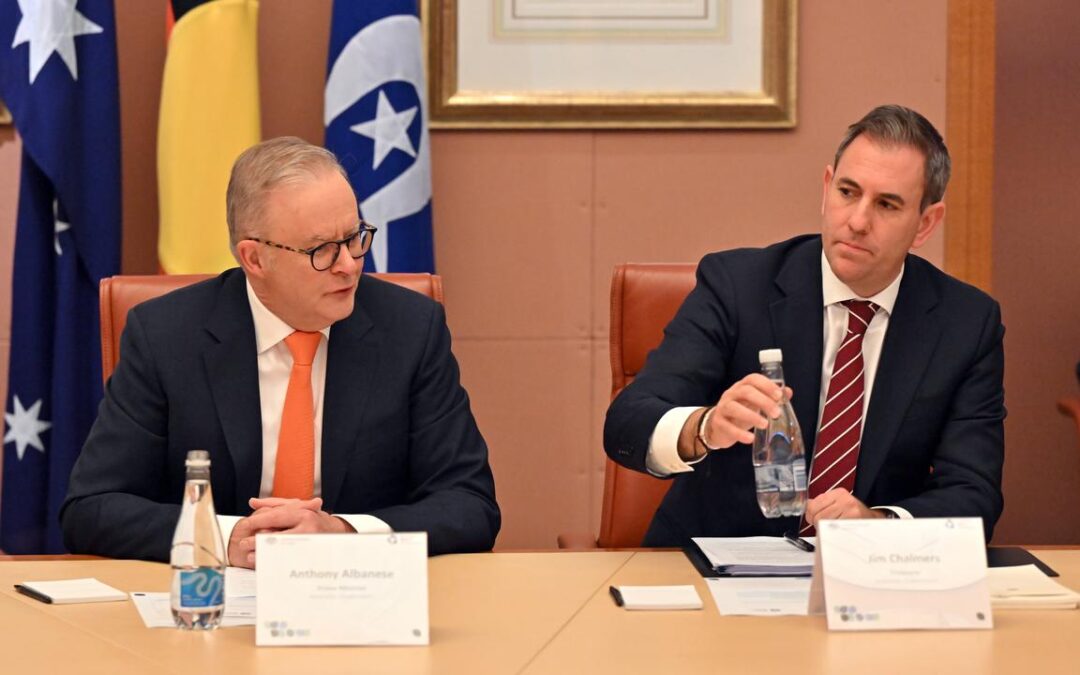
PM kicks off roundtable with call for lasting reform
Prime Minister Anthony Albanese has promised the government’s economic roundtable will deliver long-lasting change through consensus, as he opened the three-day summit in Canberra.
After weeks of build-up, a procession of the nation’s leading economists, employers, unionists and civil society representatives squeezed into Labor’s cabinet room at Parliament House on Tuesday.
The input of the 30-odd participants will shape the government’s agenda for the next three years and address pressing economic issues, Mr Albanese said.
“Political change, whether it’s in the economy, social policy or the environment, is likely to be more successful and more entrenched and more lasting when people come with us on that journey, and that’s why this engagement is important as well,” he said.
“I would be shocked if everyone in this room agreed with each other.
“In fact, we might as well not have it if that was the case, because then you wouldn’t, by definition, have a contest of ideas, which is what we’re interested in.”
Treasurer Jim Chalmers has already been bombarded with proposals ranging from winding back property investor tax breaks to environmental law reform and cutting red tape.
But he has insisted all invited parties bring specific ideas and be willing to find common ground.
“Three days to inform three budgets – and beyond,” Dr Chalmers said in his opening remarks.
“If there are solutions to the big challenges we face, I’m confident all the people in this room can help us find them.”
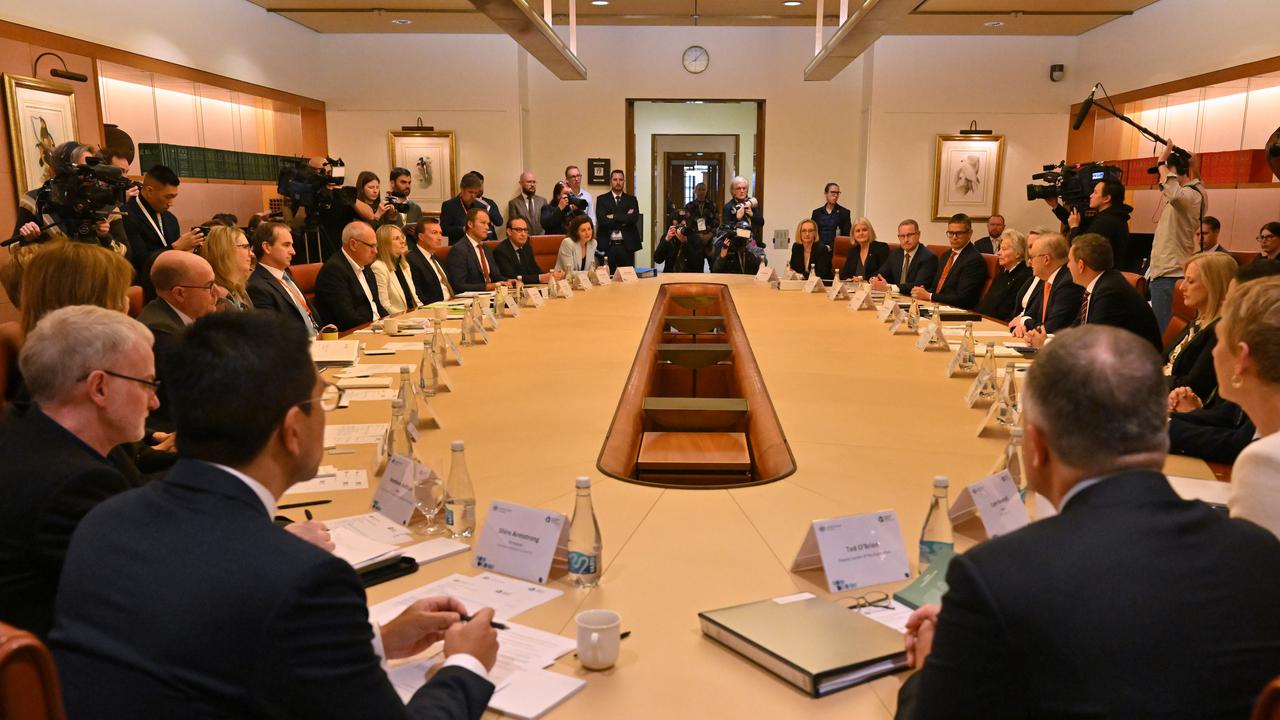
The roundtable is aimed at lifting living standards primarily by boosting productivity, which has stagnated in Australia and other western countries.
“Productivity is like a secret sauce,” AMP chief economist Shane Oliver told AAP.
“If you can get strong productivity, you can have strong profits, you can have strong wages growth and still keep inflation low.”
The first day of the roundtable is concerned with building resilience.
Following the treasurer and prime minister’s opening addresses, Reserve Bank governor Michele Bullock delivered a presentation outlining Australia’s declining productivity performance.
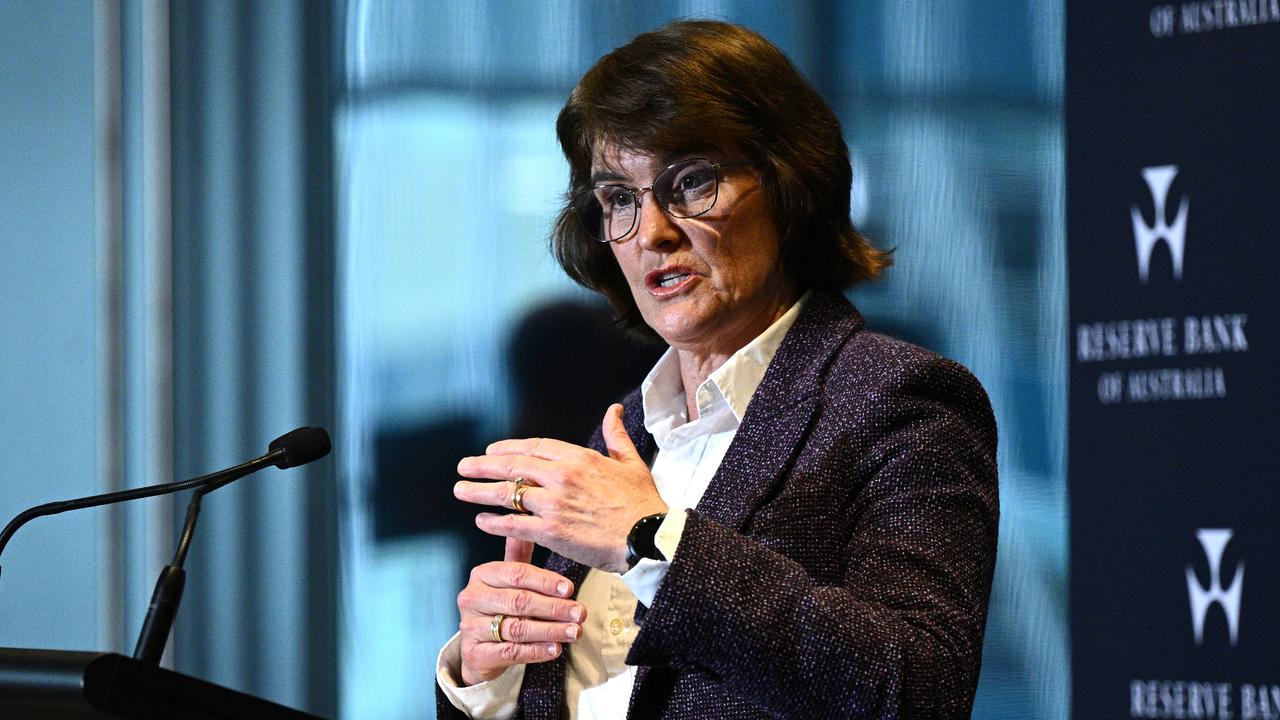
Productivity reform will feature more prominently on the second day, before budget sustainability and tax reform close out the roundtable on Thursday.
While the four leading business groups and shadow treasurer Ted O’Brien are attending the roundtable, opposition employment spokesman Tim Wilson criticised the government for not inviting the mining lobby or putting industrial relations on the agenda.
“It feels like this roundtable is set up not to talk about the core issues,” he told Sky News.
Former Productivity Commission chair Michael Brennan said while Australians needed to be realistic about reform, he was optimistic about the possible outcomes.
“The strictures that the government has put around contributions – that they be specific, budget neutral and focused on the national interest rather than the vested interest – have all improved the quality of the debate,” the e61 Institute CEO told AAP.
Despite the broad consensus that productivity needs to improve, a quarter of 1000 Australians surveyed by pollster Ipsos were unsure about what the term meant and less than one in five thought they would personally benefit from productivity growth.
The commission’s chair, Danielle Wood, said it was upsetting that productivity growth was seen as a negative by some Australians.
“Think about someone in 1960 versus someone today. We have living standards that are three times higher … we live longer, we also work fewer hours a week,” she told the National Press Club on Monday.
“What we want is the Australian in 2070 to get those same dividends, because growth continues from here on.”
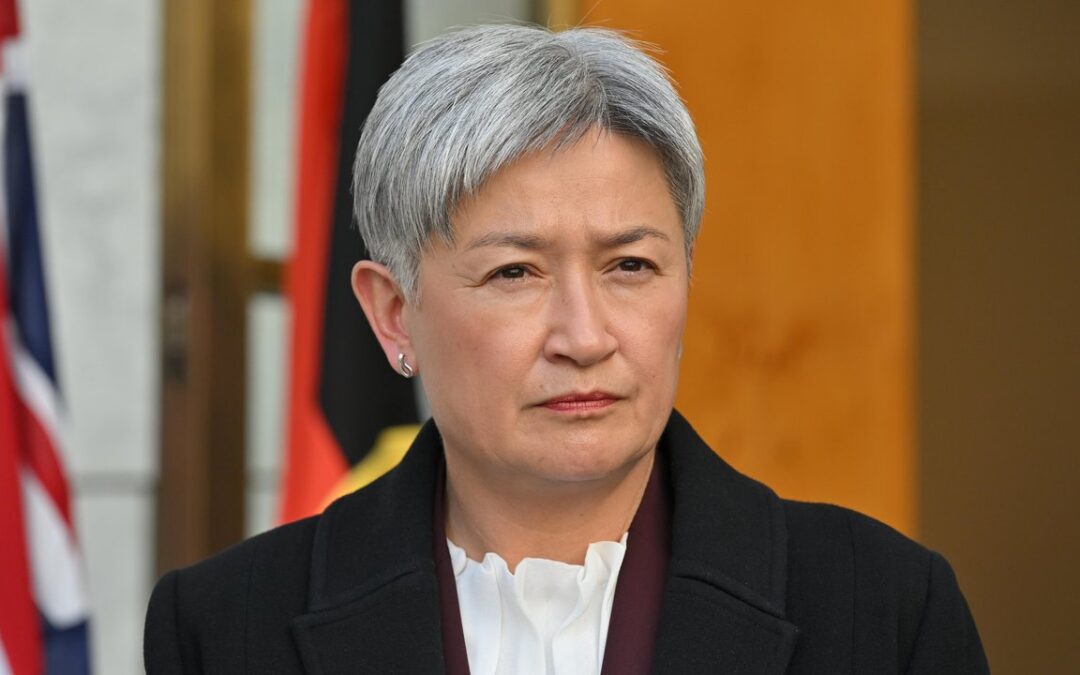
Israel’s visa action will hamper aid delivery: Labor
Israel’s “unjustified” decision to revoke the visas of Australia’s representatives to the Palestinian Authority will undermine efforts to support aid delivery on the ground, the federal government fears.
On Monday, Israel’s Foreign Minister Gideon Sa’ar said the move came in response to the nation’s recognition of a Palestinian state and for refusing entry to Israeli figures.
He also instructed the Israeli Embassy in Canberra to carefully examine any official Australian visa application for entry into Israel.
Foreign Minister Penny Wong said the government had a right to safeguard communities and protect “all Australians from hate and harm”.
“At a time when dialogue and diplomacy are needed more than ever, the Netanyahu government is isolating Israel and undermining international efforts towards peace and a two-state solution,” Senator Wong said in an early morning statement on Tuesday.
“This is an unjustified reaction, following Australia’s decision to recognise Palestine.”
She said Australia would continue to work with partners to contribute to “international momentum to a two-state solution, a ceasefire in Gaza and release of the hostages”.
The Australian government will always take decisive action against anti-Semitism, she said.
The decision, at a time when more diplomacy and dialogue was needed between the two nations, was disappointing, Finance Minister Katy Gallagher said.
It was important that Australia had representatives on the ground in Palestine, she told ABC Radio National.
“These are important positions in terms of us understanding what’s going on, also in supporting the co-ordination of aid and support on the ground.”
Earlier this month, Prime Minister Anthony Albanese confirmed Australia’s intention to recognise Palestinian statehood at the United Nations General Assembly meeting in September.
An estimated 25,000 people marched across the Sydney Harbour Bridge to protest the war in Gaza at the start of the month.
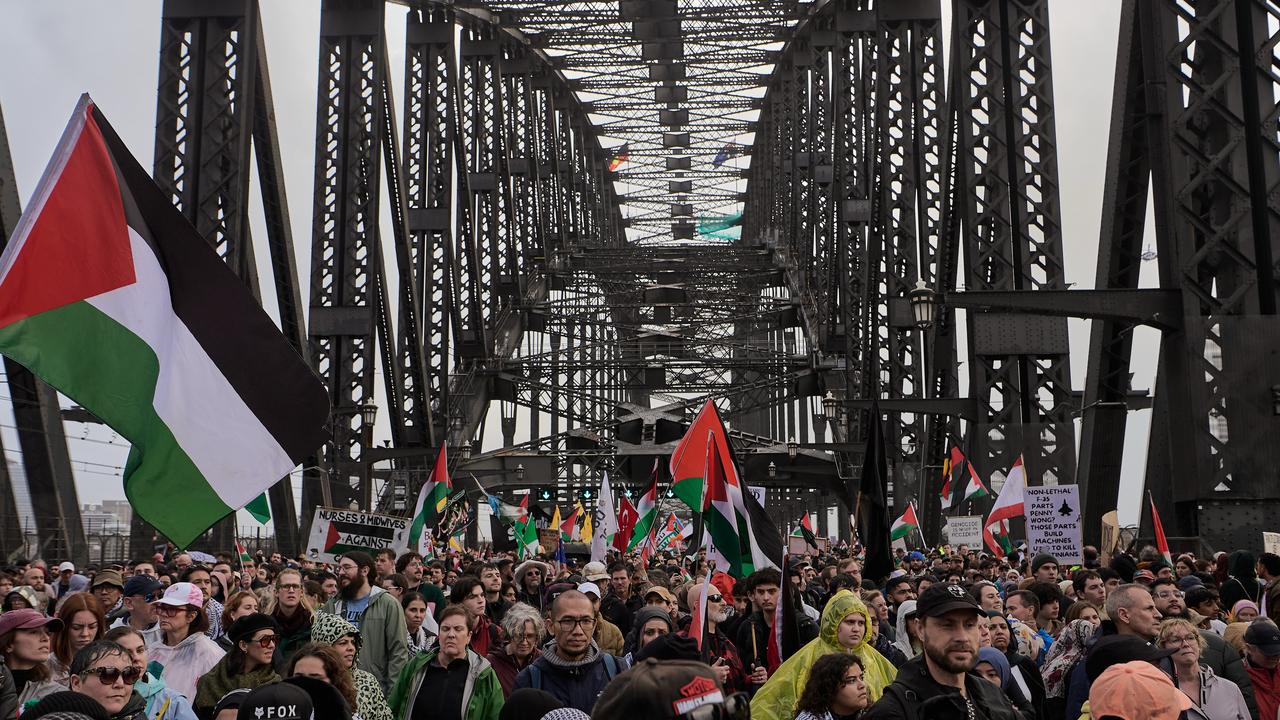
Mr Sa’ar expressed his anger on social media on Monday as he announced the visa cancellations.
“This follows Australia’s decisions to recognise a “Palestinian state” and against the backdrop of Australia’s unjustified refusal to grant visas to a number of Israeli figures, including former Minister Ayelet Shaked and the Chairman of the Knesset’s Constitution, Law and Justice Committee, MK Simcha Rothman,” Mr Sa’ar posted on social media platform X on Monday.
“While anti-Semitism is raging in Australia, including manifestations of violence against Jews and Jewish institutions, the Australian government is choosing to fuel it by false accusations, as if the visit of Israeli figures will disrupt public order and harm Australia’s Muslim population. It is shameful and unacceptable!”
Mr Sa’ar’s post comes after it was revealed on Monday that Australia denied far-right Israeli politician Simcha Rothman from entering the country for a speaking tour after provocative comments, including branding children in Gaza as enemies.
Opposition finance spokesman James Paterson said Australia’s relationship with Israel was “the worst it has ever been”.
Australia has also denied entry to former Israeli minister Ayelet Shaked, based on anti-Palestinian comments, and Israeli advocate Hillel Fuld.
Canberra has further imposed sanctions on two far-right Israeli ministers, including travel bans.
The federal government has denied entry to people who have a history of anti-Semitism, including rapper Kanye West after he released a song praising Hitler, as well as Lebanese pro-Hezbollah influencer Hussain Makke.
Lifeline 13 11 14
beyondblue 1300 22 4636
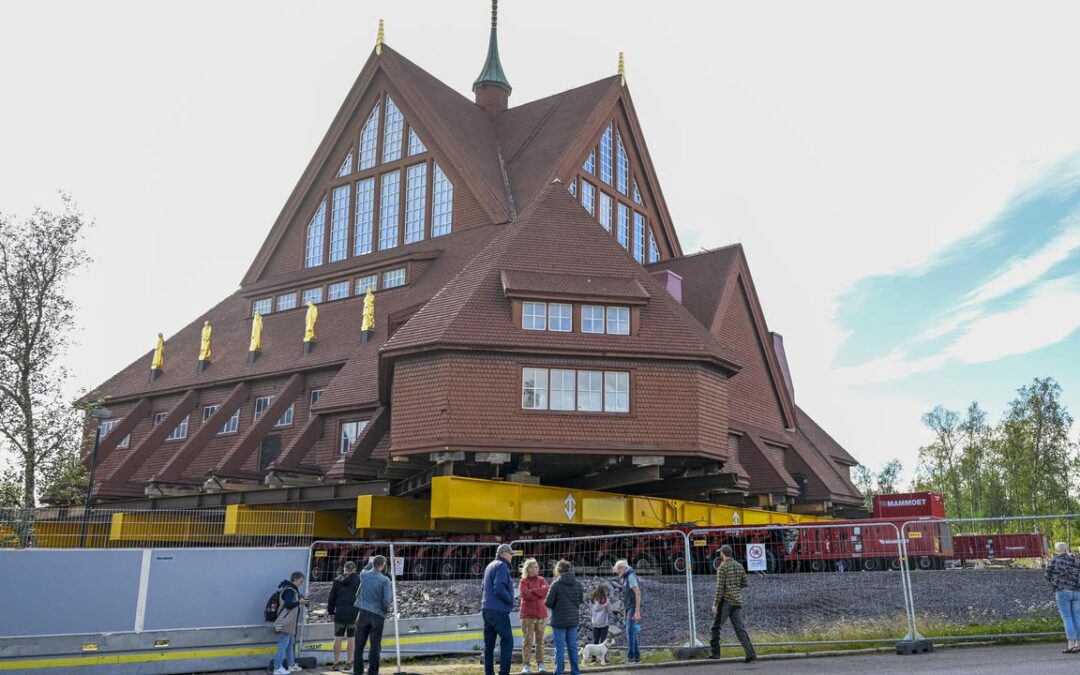
Swedish church to be moved 5km to make way for mine
Sweden’s iconic Kiruna Church will begin a two-day trip to a new home, inching five kilometres down an Arctic road to save its wooden walls from the expansion of the world’s largest underground iron ore mine.
Workers have already jacked up the 600-tonne, 113-year-old church from its foundations and hefted it onto a specially built trailer.
It is part of a 30-year project to relocate thousands of people and buildings from the Lapland city.
Mine operator LKAB has spent the last year widening the road for the journey, which will take the red-painted church, one of Sweden’s largest wooden structures, often voted its most beautiful, down a winding route to a brand new Kiruna city centre.
The journey will save the church, but take it from the site where it has stood for more than a century.
“The church is Kiruna’s soul in some way, and in some way it’s a safe place,” Lena Tjarnberg, the vicar of Kiruna, said.
“For me, it’s like a day of joy. But I think people also feel sad because we have to leave this place.”
For many of the region’s indigenous Sami community, which has herded reindeer there for thousands of years, the move is a reminder of much wider changes brought on by the expansion of mining.
“This area is traditional Sami land,” Lars-Marcus Kuhmunen, chair of the local Gabna Sami community, said.
“This area was grazing land and also a land where the calves of the reindeer were born.”
If plans for another nearby mine go ahead after the move, that would cut the path from the reindeer’s summer and winter pastures, making herding “impossible” in the future, he said.
“Fifty years ago, my great-grandfather said that the mine was going to eat up our way of life, our reindeer herding. And he was right.”
The church is just one small part of the relocation project.
LKAB says around 3000 homes and around 6000 people need to move.
A number of public and commercial buildings are being torn down, while some, like the church, are being moved in one piece.
Other buildings are being dismantled and rebuilt around the new city centre.
Hundreds of new homes, shops and a new city hall have also been constructed.
The shift should allow LKAB, which produces 80 per cent of the iron ore mined in Europe, to continue to extend the operation of Kiruna for decades to come.
The state-owned firm has brought up around two billion tonnes of ore since the 1890s, mainly from the Kiruna mine.
Mineral resources are estimated at another six billion tonnes in Kiruna and nearby Svappavaara and Malmberget.
LKAB is now planning the new mine next to the existing Kiruna site.
As well as iron ore, the proposed Per Geijer mine contains significant deposits of rare earth elements, a group of 17 metals critical to products from lasers to iPhones and green technology key to meeting Europe’s climate goals.
Europe, and much of the rest of the world, is currently almost completely dependent on China for the supply and processing of rare earths.
In March this year, the EU designated Per Geijer as a strategic project which could help speed up the process of getting the new mine into production.
Down the road, Kiruna’s new city centre is also taking shape.
“The church is … a statement or a symbol for this city transformation,” Mayor Mats Taaveniku told Reuters.
“We have 10 years left to move the rest of the city.”
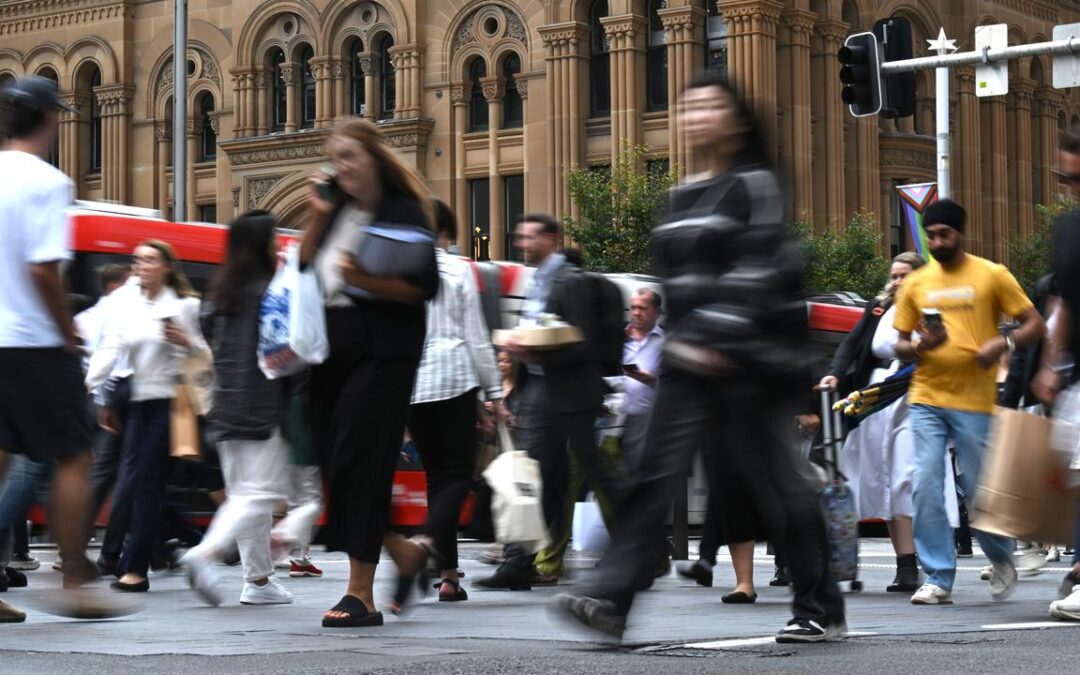
‘Unacceptable’: closing gender pay gap still hard work
Employers are being urged to end the gender pay gap by addressing segregation and workplace discrimination, as data reveals it could still take more than 20 years to close the gap.
Equal Pay Day on August 19 marks the 50 additional days women must work on average to earn the same amount their male colleagues had by the end of the financial year.
The gap is driven by three main factors – gender segregation of occupations and industries, unequal distribution of caring and family responsibilities and workplace discrimination – research by the Workplace Gender Equality Agency found.
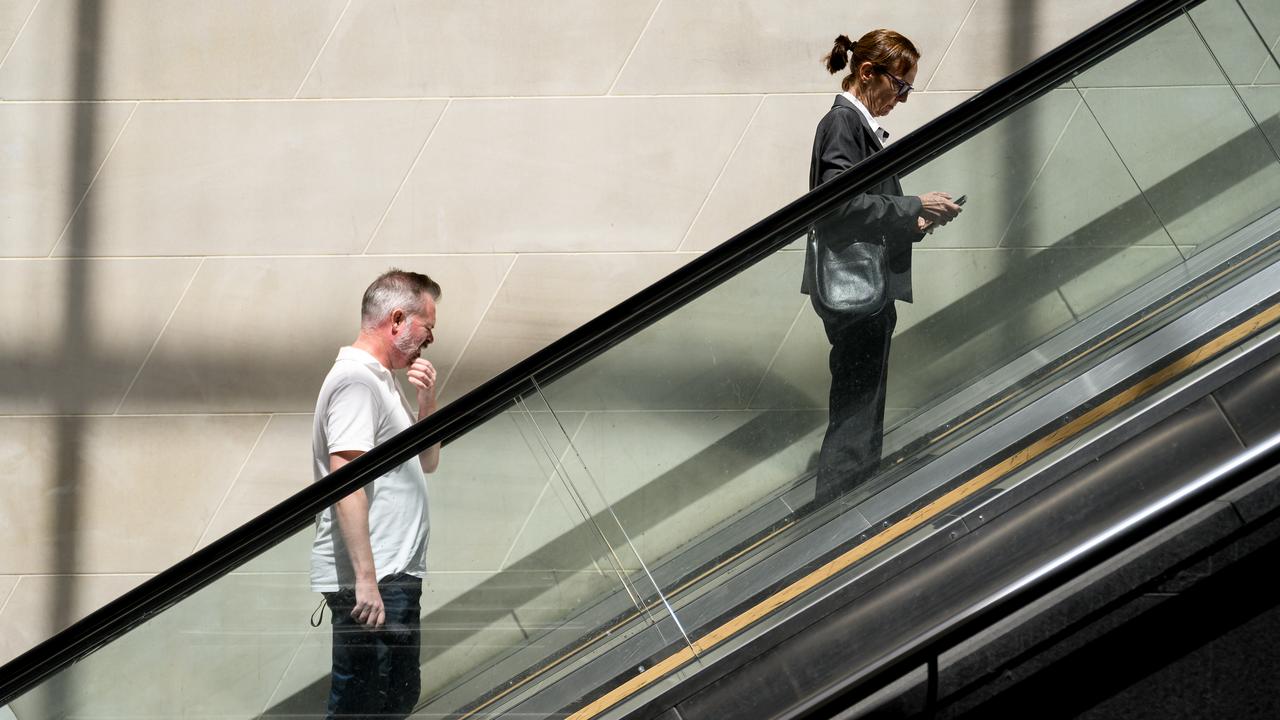
Thousands of people have used the agency’s pay calculator to work out their equal pay date at their employer.
It should be a call-to-action for employers and spark conversations about the gender pay gap in workplaces, the agency’s chief executive Mary Wooldridge said.
“We can talk about pay gap percentages but when you see it in terms of actual numbers of days women need to work to earn the same as men, it makes it very tangible,” she told AAP.
“For executives, this is an opportunity as leaders and people managers to take steps to understand what is driving pay gaps in the workplace, and can be a catalyst for starting that process.
“For employees, it’s a chance to start a conversation that sometimes can be delicate, but the data enables them to be more informed in terms of having that conversation.”
More than eight in 10 Australian employers – 84.7 per cent – have average gender pay gaps outside the target range of plus or minus five per cent.
“Every industry in Australia, including those that are women-dominated or that are gender-balanced, has a gender pay gap in favour of men,” Ms Wooldridge said.
“Equal Pay Day reminds us that there is still significant work to do to achieve equal and fair workplaces for all people.”
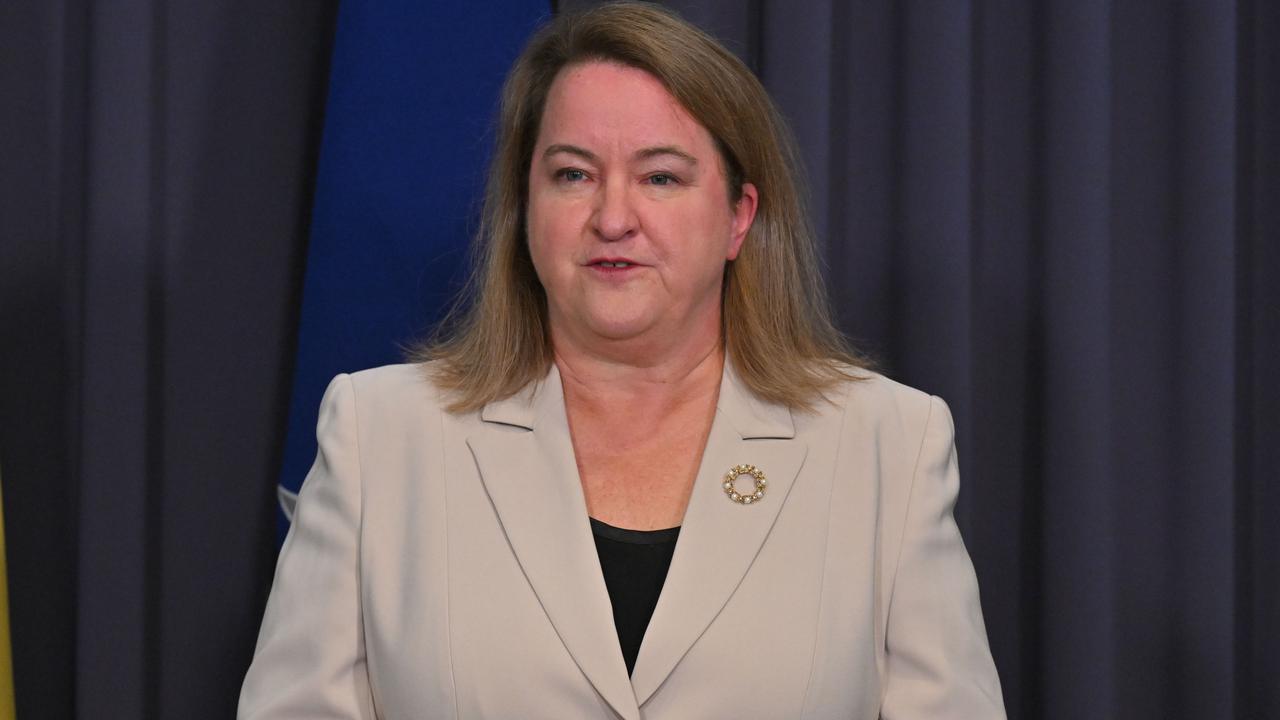
The timeline to reach pay equity in Australia is currently 21.5 years, according to analysis by the Financy Women’s Index.
When the timeline was first measured in 2017, it estimated the gender pay gap would take 37.5 years to fix.
“Equal Pay Day is a stark reminder of the economic reality for women, and our 21.5-year time frame quantifies the long road ahead,” index founder Bianca Hartge-Hazelman said.
“While it’s positive to see the number come down over the long term, it represents the median point in a much more complex journey.
“The fact that women have to work an extra 50 days into the new financial year just to catch up to men’s earnings is unacceptable.”
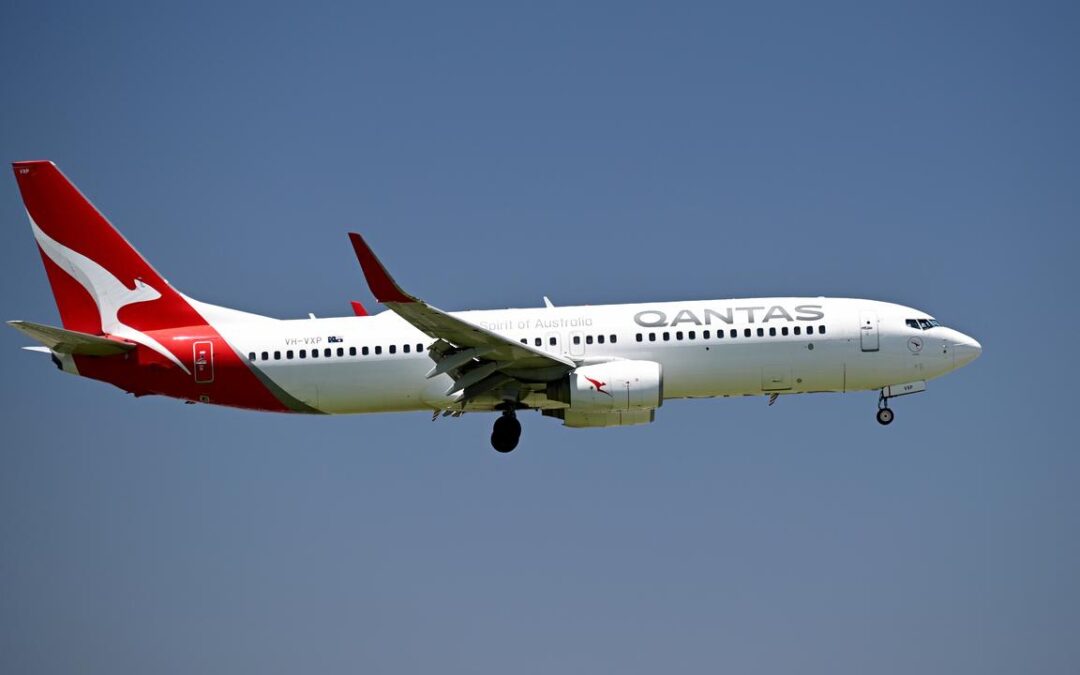
Record fine leaves Qantas with unwanted brand baggage
Qantas stands accused of betraying Australian values and undermining its reputation by illegally sacking baggage handlers.
Experts warn the airline, which markets itself as the “Spirit of Australia”, risks losing its place in the national psyche as a result of its recent indiscretions.
Qantas was on Monday fined a record $90 million for outsourcing 1820 ground staff roles, a move the Federal Court ruled was designed to curb union bargaining power in wage negotiations.
It added to a $100 million fine it received for selling tickets to flights that were already cancelled between 2021 and 2023, against the backdrop of executives pocketing seven-figure bonuses.
Trading on being the “Spirit of Australia” could mean the flag carrier might be held to “exceptional, indeed unique” standards, Justice Michael Lee noted as he delivered the fine.
RMIT associate professor of finance Angel Zhong agreed, saying the positioning invited scrutiny of the airline’s ethics, not only its performance.
“Illegally sacking workers is seen as a betrayal of the very values Qantas claims to represent: fairness, mateship and respect,” she told AAP.
“If Qantas is the ‘Spirit of Australia’, then the public expects it to act with a conscience, not just a balance sheet.”
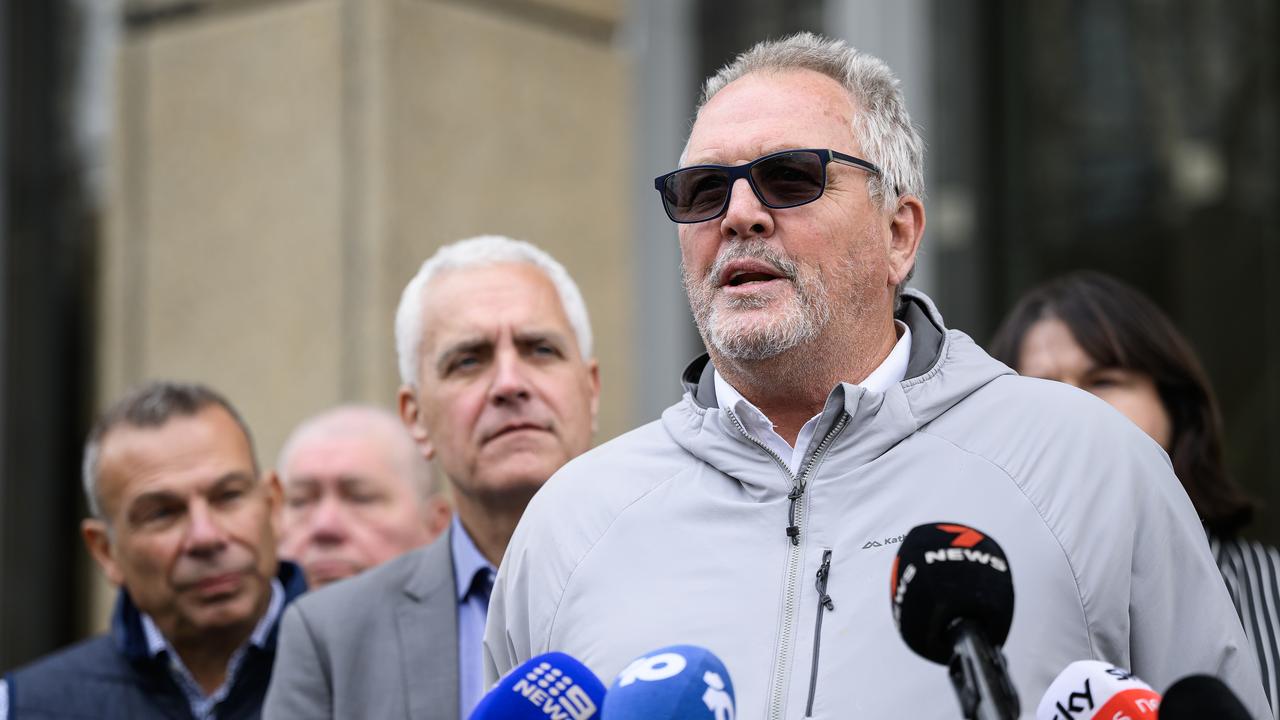
Illegally sacked Qantas employee Don Dixon said the company meant everything to Australians, but needed to behave with that in mind.
“It’s an Australian company. You go overseas and see that red kangaroo, you know ‘that’s my country and I’m going home, I feel safe’ … that’s been lost,” he told AAP.
The embattled airline unsuccessfully appealed against the decision to the High Court, paving the way for the penalty to be awarded.
Justice Lee ordered Qantas to pay $90 million in penalties, with $50 million to be paid to the union that brought the proceedings and highlighted the illegal conduct.
He cited the “sheer scale of the contraventions, being the largest of their type” as a reason to impose a penalty that would deter other businesses from similar conduct.
Qantas will have to pay the hefty bill on top of a $120 million compensation payment it has made to the affected ground staff for their economic loss, pain and suffering following the outsourcing.
Public frustration and disappointment with Qantas might have increased, Assoc Prof Zhong said, but it wouldn’t necessarily change consumer behaviour with price, route availability and loyalty programs outweighing ethical concerns.
“That said, sustained reputational damage can have long-term effects,” she said.
“If trust continues to decline, Qantas risks losing not just customers, but its privileged position in the national psyche.”
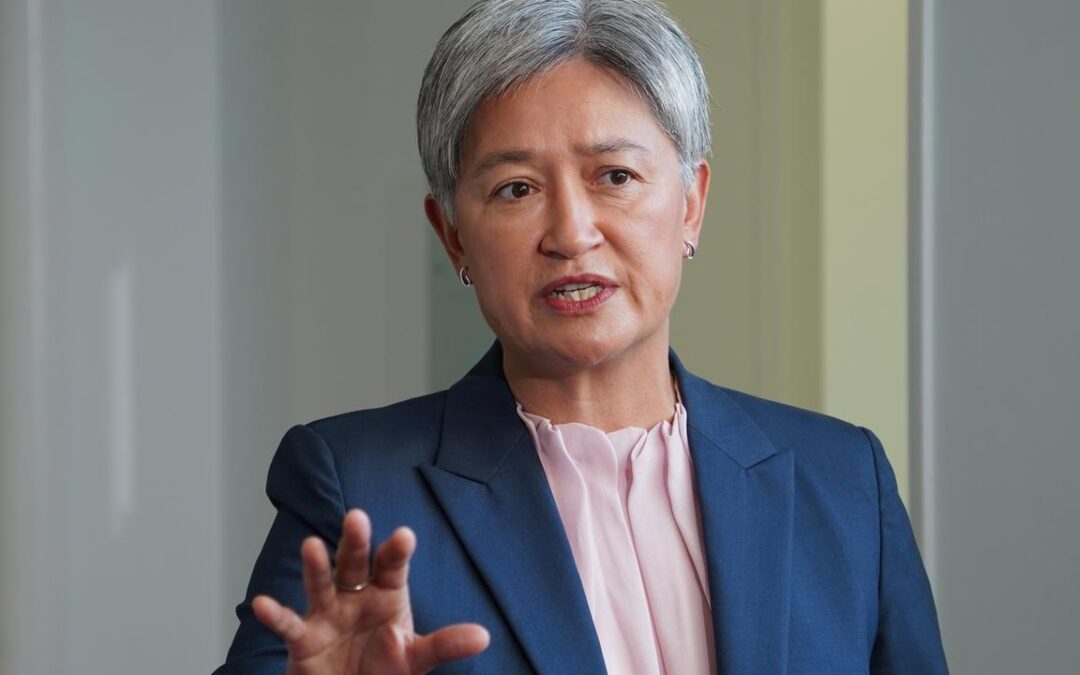
Wong slams Israel’s “unjustified” visa repeal move
Foreign Minister Penny Wong says Israel’s decision to revoke the visas of Australia’s representatives to the Palestinian Authority is “unjustified”.
On Monday, Israel’s Foreign Minister Gideon Sa’ar said the visas of Australia’s representatives to the Palestinian Authority have been revoked over the nation’s recognition of a Palestinian state and for refusing entry to Israeli figures.
He has also instructed the Israeli Embassy in Canberra to carefully examine any official Australian visa application for entry into Israel.
Senator Wong said the federal government had a right to safeguard communities and protect “all Australians from hate and harm”.
“At a time when dialogue and diplomacy are needed more than ever, the Netanyahu government is isolating Israel and undermining international efforts towards peace and a two-state solution,” Senator Wong said in an early morning statement on Tuesday.
“This is an unjustified reaction, following Australia’s decision to recognise Palestine.”
She said Australia will continue to work with partners to contribute to “international momentum to a two-state solution, a ceasefire in Gaza and release of the hostages”.
“Australia welcomes different races, religions and views, united by respect for each other’s humanity and for each other’s right to live in peace,” she said.
The Australian government will always take decisive action against anti-semitism, she said.
Earlier this month, Prime Minister Anthony Albanese confirmed Australia’s intention to recognise Palestinian statehood at the United Nations General Assembly meeting in September.
An estimated 25,000 people marched across the Sydney Harbour Bridge to protest the war in Gaza at the start of the month.
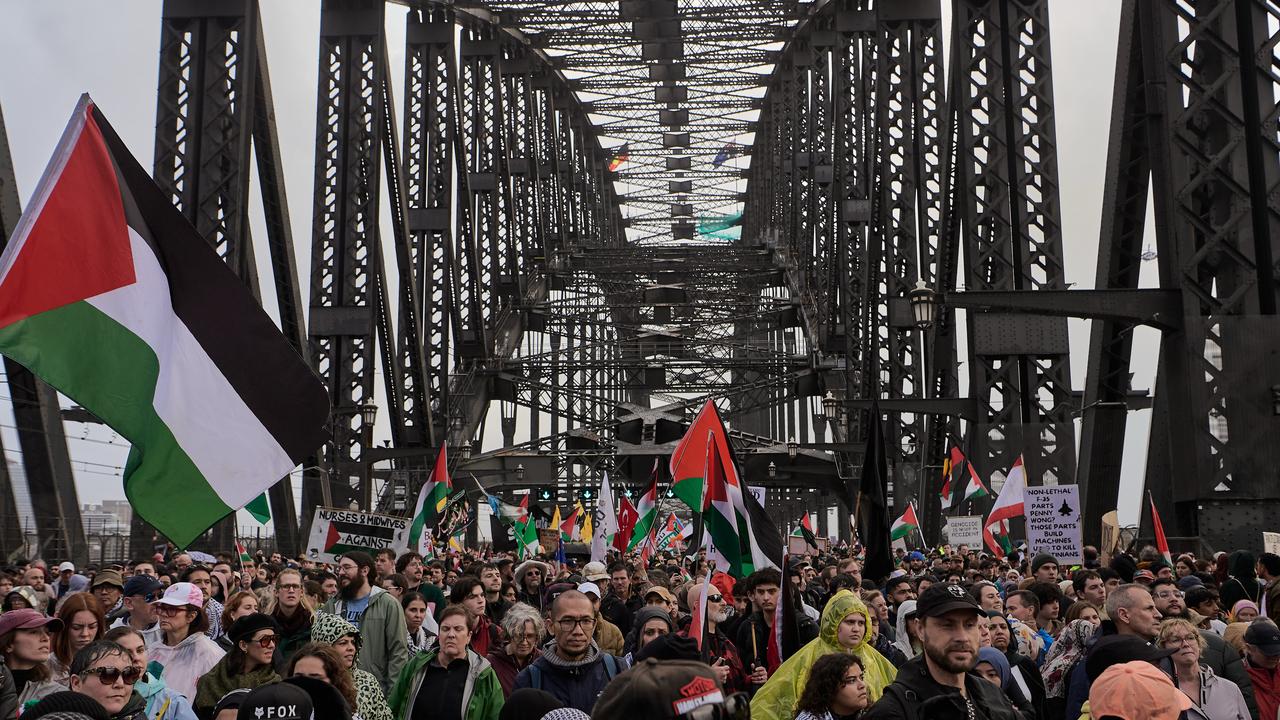
Mr Sa’ar expressed his anger on social media on Monday as he announced the visa cancellations.
“This follows Australia’s decisions to recognise a “Palestinian state” and against the backdrop of Australia’s unjustified refusal to grant visas to a number of Israeli figures, including former Minister Ayelet Shaked and the Chairman of the Knesset’s Constitution, Law and Justice Committee, MK Simcha Rothman,” Mr Sa’ar posted on social media platform X on Monday.
“While anti-Semitism is raging in Australia, including manifestations of violence against Jews and Jewish institutions, the Australian government is choosing to fuel it by false accusations, as if the visit of Israeli figures will disrupt public order and harm Australia’s Muslim population. It is shameful and unacceptable!”
Mr Sa’ar’s post comes after it was revealed on Monday that Australia denied far-right Israeli politician Simcha Rothman from entering the country for a speaking tour after provocative comments, including branding children in Gaza as enemies.
Australia has also denied entry to former Israeli minister Ayelet Shaked, based on anti-Palestinian comments, and Israeli advocate Hillel Fuld.
Canberra has further sanctioned two far-right Israeli ministers, including travel bans.
The federal government has denied entry to people who have a history of anti-Semitism, including rapper Kanye West, after he released a song praising Hitler.
Lifeline 13 11 14
beyondblue 1300 22 4636
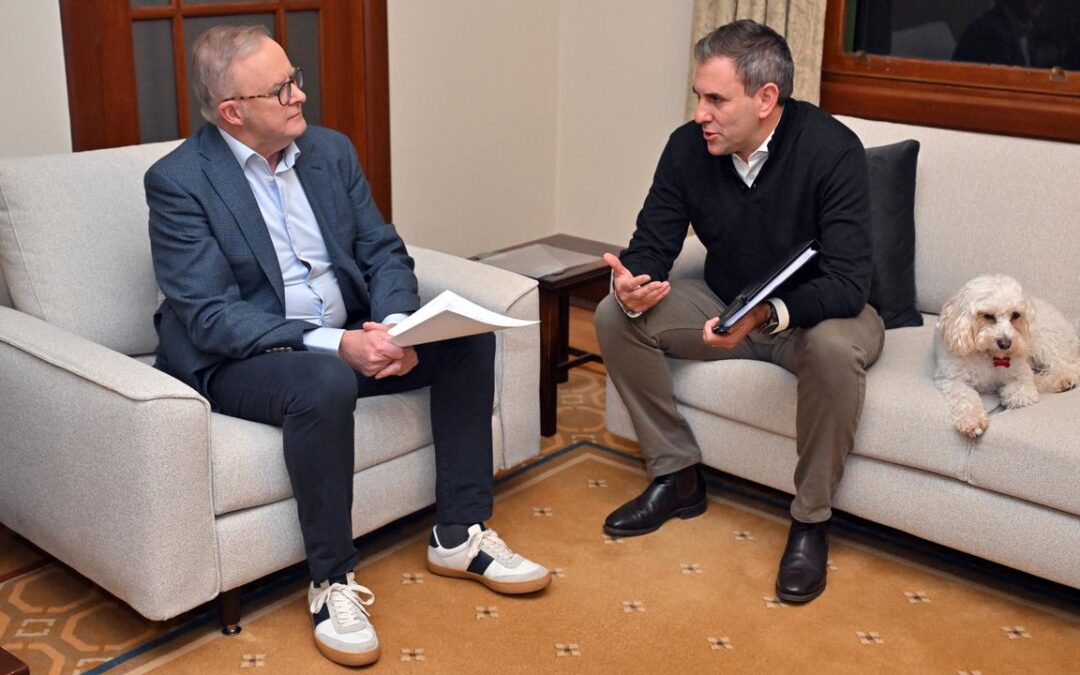
Productivity symposium looks to find the ‘secret sauce’
The next chapter of Australia’s economic story is set to be written as the nation’s top economic minds brainstorm answers to ailing productivity.
After weeks of anticipation, the federal government’s three-day economic roundtable will kick off on Tuesday in Canberra.
Treasurer Jim Chalmers has already been bombarded with proposals ranging from winding back property investor tax breaks to environmental law reform and cutting red tape.
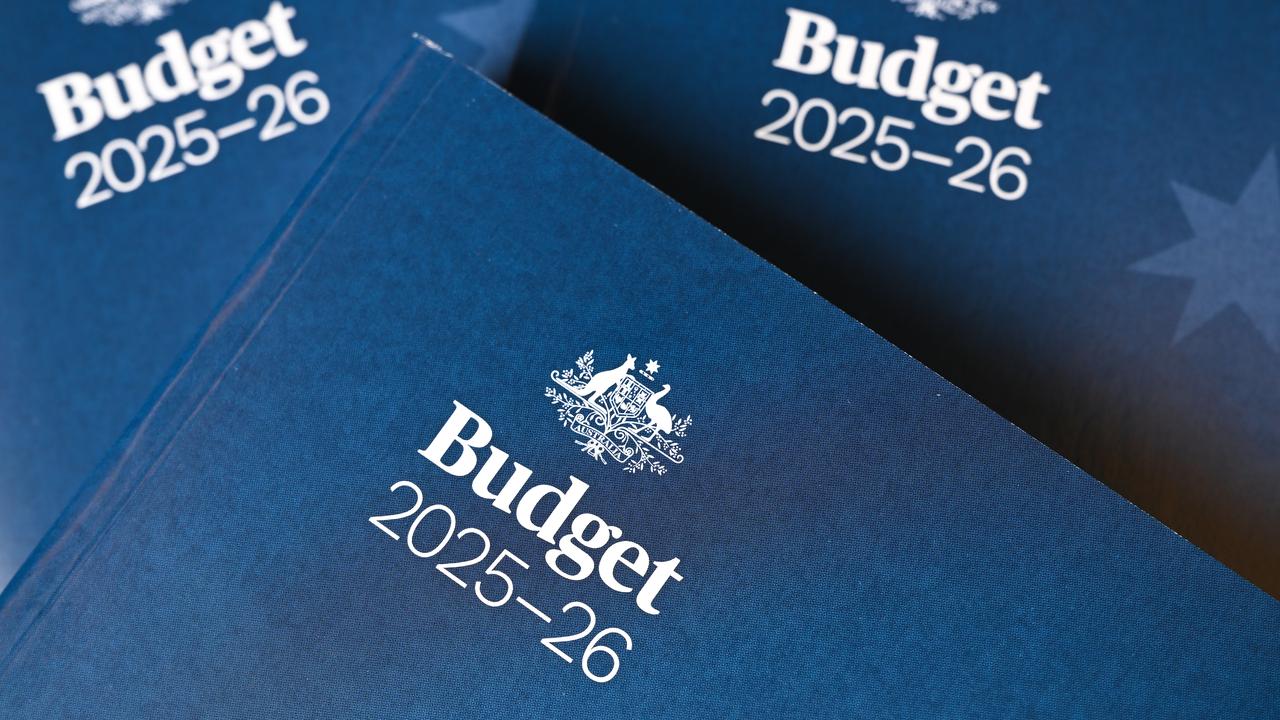
But he has insisted all invited parties bring specific ideas and be willing to find common ground as the outcomes of the roundtable will help steer Australia’s economic agenda.
“Three days to inform three budgets – and beyond,” Dr Chalmers will say in his opening remarks.
“(The prime minister) has been clear that this is about writing the next chapter of economic reform and I want to acknowledge the leadership he’s shown.
“We are realistic about the impact of all this, but optimistic too. In this world of churn and change, we like Australia’s chances.”
Even though the Australian economy has made significant progress on wages, inflation and employment, Dr Chalmers has acknowledged there is still more to do.
The roundtable is aimed at lifting living standards primarily by boosting productivity, which has stagnated in Australia and other western countries.
“Productivity is like a secret sauce,” AMP chief economist Shane Oliver told AAP.
“If you can get strong productivity, you can have strong profits, you can have strong wages growth and still keep inflation low.”
Improved productivity can help guard against future cost-of-living crises, which is particularly important during times of global uncertainty.
The first day of the roundtable is expected to put a spotlight on ways to build resilience, with Reserve Bank governor Michele Bullock set to headline Tuesday’s proceedings through her presentation on productivity trends.
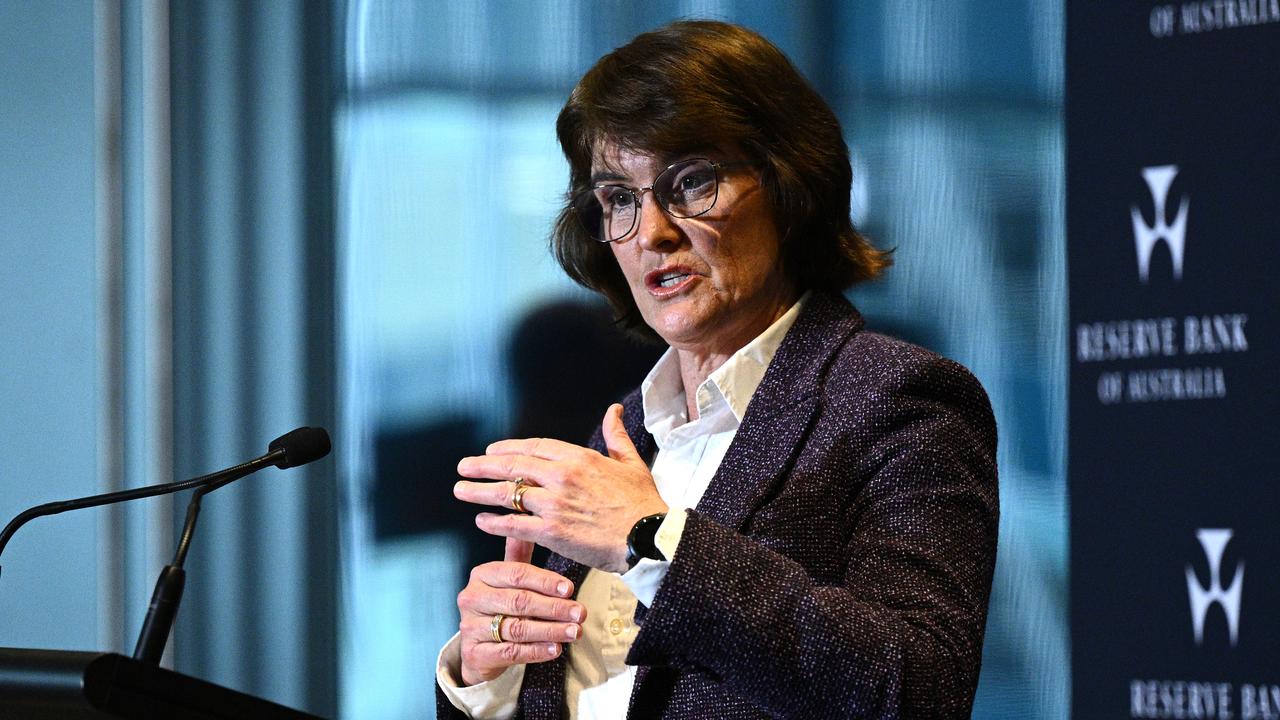
Productivity reform will feature more prominently on the second day before budget sustainability and tax reform help close out the roundtable on Thursday.
Environment groups, the business sector, unions and others have all proposed major ideas, but Dr Oliver is keeping his expectations in check and says a firm commitment to regulation, investment incentives and competition reform could likely be called a success.
Former Productivity Commission chair Michael Brennan has urged Australians to be realistic about reforms but said he was optimistic.
“The strictures that the government has put around contributions – that they be specific, budget neutral and focused on the national interest rather than the vested interest – have all improved the quality of the debate,” the e61 Institute chief executive told AAP.
“I’m hopeful that there will be positive outcomes but it’s already had a positive impact.”